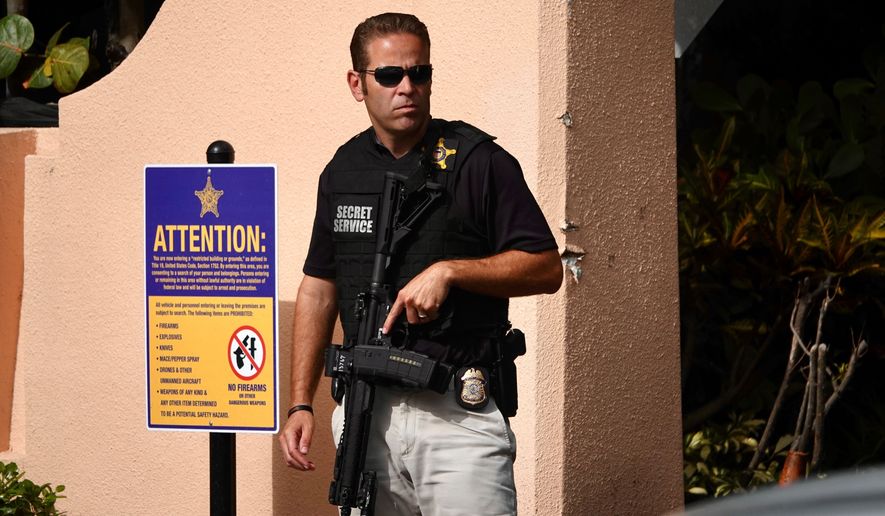The Justice Department on Thursday filed under seal its proposed redactions to the affidavit that explains the reasons for its unprecedented raid of former President Donald Trump’s residence in the Mar-a-Lago club in Palm Beach, Florida.
“The United States has filed a submission under seal per the Court’s order,” a Justice Department spokesperson said in a statement.
Justice Department lawyers filed the proposed redactions in a bid to comply with a court order issued last week by U.S. Magistrate Judge Bruce E. Reinhart, who signaled last week that he may make portions of the affidavit public.
Typically, such documents remain under seal until criminal charges are filed or an investigation is closed to protect cooperating witnesses and shield documents that could compromise the investigation.
It is possible that when the Mar-a-Lago affidavit is publicly released, the redactions are so extensive it renders the document useless.
Roughly 30 armed FBI agents raided Mr. Trump’s residence on Aug. 8 and removed dozens of boxes of documents and other materials, including 11 sets of classified documents. Some documents were marked “top secret” and “sensitive compartmented information,” the federal government’s two highest security classifications.
So far, no details have been released about what the documents may have contained.
There is no time frame for when the redacted document could be viewed by the public. Judge Reinhart is still weighing whether to keep the entire affidavit under or seal or release part of it. He also said that if he disagreed with the Justice Department’s proposed redactions, he will hold a closed-door hearing with the government to discuss what should be withheld from the public.
“I must still consider whether there is a less onerous alternative to sealing the entire document,” he wrote in an order Monday. “I cannot say at this point that partial redactions will be so extensive that they will result in a meaningless disclosure, but I may ultimately reach that conclusion after hearing further from the Government.”
However, the intense scrutiny of the Trump investigation may prompt Judge Reinhart to release some of the documents. Mr. Trump demanded that the Justice Department release the full affidavit, claiming it would discredit the investigation.
Taylor Budowich, a spokesman for the former president, called the Justice Department’s efforts to shield the affidavit from the public a “cynical attempt” to cover up its political bias.
“The whole affidavit should be released, given the Democrats’ penchant for using redactions to hide government corruption, just like they did with the Russia hoax,” Mr. Budowich said last week.
Several news organizations and the conservative advocacy group Judicial Watch have mounted a legal challenge to unseal the affidavit. Mr. Trump has not joined the lawsuit, despite his repeated insistence that the affidavit goes public.
Justice Department lawyers argued that releasing the affidavit could set a precedent in other high-profile cases, thus jeopardizing those investigations.
However, Judge Reinhart said in his court filing that those cases are not his immediate concern.
“I do not need to reach the question of whether, in some other case, these concerns could justify denying public access; they very well might. Particularly given the intense public and historical interest in an unprecedented search of a former President’s residence, the Government has not yet shown that these administrative concerns are sufficient to justify sealing,” he wrote.
• Jeff Mordock can be reached at jmordock@washingtontimes.com.




Please read our comment policy before commenting.